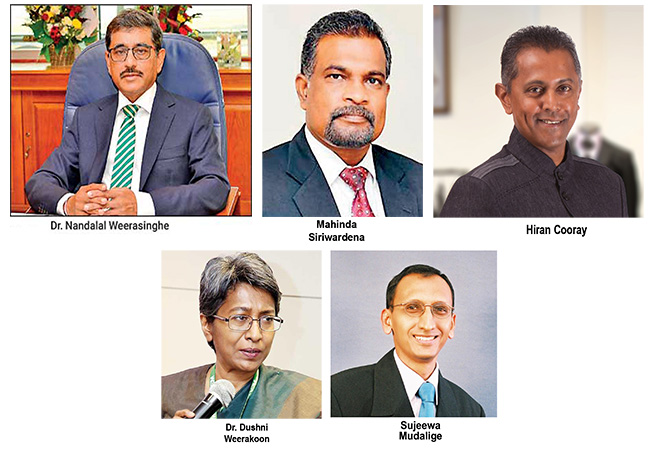Business
Implementing budget proposals and reform measures crucial for SL – CBSL Governor

Hiran H. Senewiratne
Sri Lanka needs to implement budget proposals and reform measures to start earning crucial foreign exchange to help stabilize its economy and ensure it does not return to crisis, Governor of the Central Bank, Dr. Nandalal Weerasinghe said.
“The situation in the island nation is stable but at a very low point and the Sri Lankan economy can turn around by the end of 2023 if budget policies are implemented, which are not limited to the International Monetary Fund’s recommendations, Dr Weerasinghe said at a post-budget panel discussion held at Central Bank auditorium yesterday titled, ‘Dissecting the Budget 2023’. The event was organized by the Centre for Banking Studies of the Central Bank of Sri Lanka, Rajagiriya.
Dr. Weerasinghe added: ‘The budget has to look at what reforms are needed to ensure Sri Lanka remains stable and does not return to crisis, expecting relief from creditors in the process. But in order to convince them to share the pain we also have to show them that we are taking a share of the pain as well.
‘The soaring inflation, a weakening currency and low foreign exchange reserves have left the island of 22 million people struggling to pay for imports of essentials, such as, food, fuel and medicine and is in dire need of an IMF bailout.
‘Sri Lanka signed a staff-level agreement with the IMF in early September but needs to get financing assurances from multiple creditors, including China and Japan, to secure disbursements.
‘The next crucial step is to get financing assurances and the IMF programme and additional financial support so that Sri Lanka can eventually return to a growth path.
‘Sri Lanka needs to reform its loss-making state-owned enterprises so they cease being a burden on the banks, the government and the people.’
Treasury Secretary K. M. Mahinda Siriwardana said at the same event that stabilizing the economy remained a challenge and the private sector must perform its role in aiding the government in pulling the economy out of crisis.
He said the government was setting up a Presidential Committee to monitor and ensure timely implementation of budget proposals.
‘Sri Lanka needs to stop depending on debt for its financing requirements and implement measures to bring in foreign exchange. At present the government has Rs 200 billion in unpaid bills, which need to be settled as soon as possible.
‘Addressing the chronic fiscal and current account deficits, while also collecting more revenue and maintaining a reasonable level of sovereign debt, were all going to be crucial.
‘The economy cannot be reformed overnight. That is a painful process. The next challenge is to implement the budget according to a timeline, Siriwardena added.
Sujeewa Mudalige, Chief Executive Officer, PwC Sri Lanka said that Sri Lanka’s revenue to GDP ratio is around 8.3 per cent, which is the lowest in the world. Further, it is 20 per cent of the budget deficit, which is very unstable.
Mudalige added: “My worry is that our estimated revenue for the 2023 of a 64 per cent increase in revenue expectations was highly optimistic because our economy is going through a contraction. But at this juncture we have to encourage US dollar- earning companies to invest here.
‘ A very high export tax of 30 per cent has really discouraged our exporters and they are now in the process of relocating their operations to other destination like Ethiopia, Bangladesh, Vietnam, Kenya and Egypt, which offer very low taxes for foreign investors.
‘Sri Lanka is spending Rs 500 billion to maintain its three armed forces and police, which would soon touch Rs one trillion. If the government allocated 10 per cent of that Rs 500 billion for health and education we could see a major transformation in the country.
Chairman, Jetwing Group, Hiran Cooray said at the panel discussion that present day youngsters don’t believe in the budget, because they are now unwilling to remain in Sri Lanka due to the uncertainty in it.
“As a country we need to protect our human resources. Therefore, we need to have a proper system to retain our youth in the country, if not we will be left with an aging population.
Executive Director of the Institute of Policy Studies of Sri Lanka (IPS) Dr. Dushni Weerakoon said that revenue targets set by the budget would not be achievable unless we strengthen our political and economic institutions.
‘Macro- economic stability, enhanced productivity and competencies, strengthened factor endowment ensure growth in every sector. This will not be achieved overnight but some genuine effort will take the country into proper growth trajectory.’